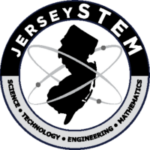It’s Time to Get Serious About Encouraging Women and Black Girls to Pursue STEM
It’s Time to Get Serious About Encouraging Women and Black Girls to Pursue STEM
Dr. Martin Luther King Jr. once said: “Darkness cannot drive out darkness, only light can do that.”
Right now, many young middle school Black girls are unaware of the contributions of Black women in science, technology, engineering and mathematics (STEM). Lacking this knowledge and, as a result, the role models that might inspire curiosity, young Black girls are often not encouraged and do not pursue STEM electives in school or, subsequently, STEM careers.
It’s important that this changes. The U.S.’s evolving workforce needs include millions of STEM professionals. According to the Bureau of Labor Statistics, in 2015, African American women represented only 3 percent of the computing workforce and 1 percent of the engineering workforce.
On January 15, America celebrates the life and legacy of Dr. Martin Luther King Jr. Dr. King worked to ensure that every student would have equal access to educational opportunities. JerseySTEM honors his commitment by working to close the representation gap in STEM through after-school education programs.
In honor of Martin Luther King, Jr. Day, we wanted to look at a few of the important contributions Black women have made to advancements in STEM that affect how we live and work today – exceptional role models for any young woman considering where they want to go in their education and future career.
- Dorothy Vaughan, Katherine Johnson, and Mary Jackson became known to many of us with the release of the movie Hidden Figures. These women all contributed to both making space travel a reality.
- Bessie Blount was a physical therapist from New Jersey who invented a device that helped soldiers who had lost arms in WWII feed themselves. Further, working in hospitals led Blount to observe a relationship between physical health and handwriting. She published a paper on “medical graphology,” which jump-started handwriting analysis and forensics. (Source: “13 Black Women in STEM You Should Know!” GoldieBlox, updated February 2023)
- Nola Hylton played an integral role in the development of MRI technology for the detection and diagnosis of breast cancer. She has been a co-leader of the U.S. Department of Health and Human Services’ Women’s Health International Group, where she identified and addressed barriers to clinical dissemination of breast MRI. (Source: “13 Black Women in STEM You Should Know!”)
How can you help JerseySTEM on its mission to bring STEM education to middle school girls in underrepresented communities in New Jersey?
- Become a sponsor: Make a monetary or in-kind gift in support of our programming and operations.
- Donate: We welcome donations of any size to help offset program costs like transportation for volunteers.
- If you’re a college student, become a program instructor.
Learn more at jerseystem.org, or contact Nabil Mouline at [email protected] for more information.
About JerseySTEM
JerseySTEM is a grassroots 501(c) nonprofit organization bringing science, technology, engineering, and math (STEM) education to middle school girls in underrepresented communities in New Jersey. We develop and deliver innovative, hands-on, and online after-school projects and inquiry-based learning opportunities that develop teamwork, 21st-century problem-solving skills, and self-esteem. Learn more about our mission and goals by visiting jerseystem.org/about-us.













